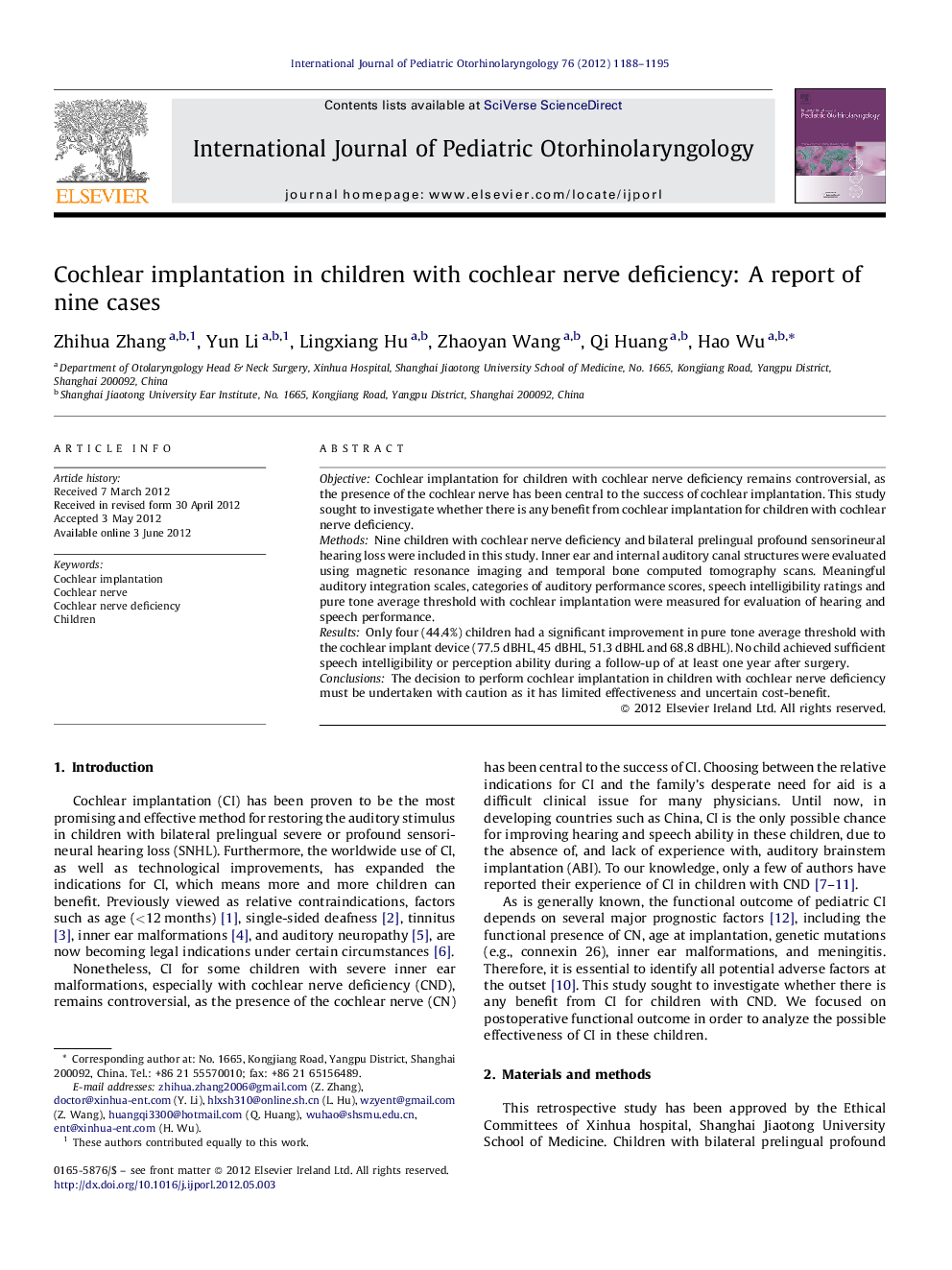| Article ID | Journal | Published Year | Pages | File Type |
|---|---|---|---|---|
| 4112696 | International Journal of Pediatric Otorhinolaryngology | 2012 | 8 Pages |
ObjectiveCochlear implantation for children with cochlear nerve deficiency remains controversial, as the presence of the cochlear nerve has been central to the success of cochlear implantation. This study sought to investigate whether there is any benefit from cochlear implantation for children with cochlear nerve deficiency.MethodsNine children with cochlear nerve deficiency and bilateral prelingual profound sensorineural hearing loss were included in this study. Inner ear and internal auditory canal structures were evaluated using magnetic resonance imaging and temporal bone computed tomography scans. Meaningful auditory integration scales, categories of auditory performance scores, speech intelligibility ratings and pure tone average threshold with cochlear implantation were measured for evaluation of hearing and speech performance.ResultsOnly four (44.4%) children had a significant improvement in pure tone average threshold with the cochlear implant device (77.5 dBHL, 45 dBHL, 51.3 dBHL and 68.8 dBHL). No child achieved sufficient speech intelligibility or perception ability during a follow-up of at least one year after surgery.ConclusionsThe decision to perform cochlear implantation in children with cochlear nerve deficiency must be undertaken with caution as it has limited effectiveness and uncertain cost-benefit.
